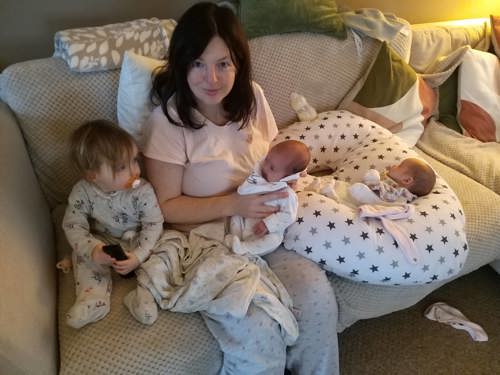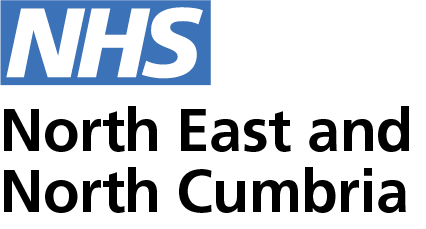Living with endometriosis

"I was 13 when I first went to my GP because of period pain. I was given a bottle of painkillers and told it was all part of being a woman.
"But the pain didn't go away.
"My teenage years were plagued with heavy bleeding, fainting, vomiting and excruciating cramps. I have vivid memories of my friends trying to lift me off the floor of the school changing rooms after collapsing during PE.
"My GP put me on the contraceptive pill at 15 to manage my periods and it kept things at bay, but my 20s and early 30s were still marked by a lot of discomfort. The synthetic hormones kept coming, too. As the pill's efficacy wore off and its side effects increased, I was prescribed the mini pill, contraceptive implant, copper and Mirena coils. Nothing worked.
"When I was 34, I collapsed at work. Right in the middle of the canteen at lunchtime. That afternoon, I went to the GP to get checked over. She thought it might be a kidney infection. I said it was typical of my experiences of having a period. You couldn't possibly have this much pain every month, she said.
"A month later, I had to leave work again because of crippling pain in my abdomen. I went to the GP and was seen by a locum. In between these two trips to the doctor, I'd turned 35. The doctor told me I was now in "the fertility window" so he'd refer me for investigations in case my symptoms might impact on my ability to have children in the future. It was the first time in 20 years that any investigations into my symptoms had been ordered. And not because my quality of life was affected or that I was in regular pain, but because my fertility could be compromised."
Getting a diagnosis
"A few weeks later, I had a scan that showed a 5cm cyst on my left ovary. Endometriosis was suspected. It was confirmed via laparoscopic surgery in March 2018, where I was diagnosed with severe endometriosis.
"Endometriosis occurs when cells similar to the ones in the lining of the womb are found elsewhere in the body. The cells grow and change in response to hormones in the menstrual cycle and can cause inflammation, pain and scar tissue.
"Endometriosis affects 10% of women and there are over 1.5 million people in the UK living with it. There is limited understanding of its cause and there is no cure.
"For me, endometriosis causes endometrioma cysts (otherwise known as 'chocolate cysts') and pelvic adhesions that create lots of discomfort, including sticking my ovaries to my uterus (something lovingly termed 'kissing ovaries', although it doesn't feel quite so delightful)."
Impact on fertility
"The GP's fertility prophecy came to pass: endometriosis had compromised my body so much that I was referred for IVF.
"My husband and I were lucky enough to get four viable embryos from one round of IVF at Gateshead Fertility Clinic. I got pregnant following a fresh embryo transfer in September 2019 and our daughter, Cora, was born in May 2020 (at the height of the Covid-19 lockdown – but that's a story for another article!).
"When Cora was 1, we tried again with a frozen embryo transfer but, unfortunately, didn't get pregnant. Our third embryo was transferred in April 2021 and resulted in a positive pregnancy test. At the six-week scan, I found out that embryo had split, and I was having identical twins. Erin and Caitlin were born in December 2021. At that point, we had three children under two. We haven't slept since.
"We donated our fourth and final embryo to medical research to support stem cell trials in cancer treatment. It was an incredibly emotional decision to make but one, I hope, has made a difference to people's lives in some way."
Still no cure
"There's a well-established narrative that pregnancy cures endometriosis. Trust me, it doesn't. Following my pregnancies, the pain returned. As my ovaries were badly affected by endometriosis, ovulation was horrific and often more painful than a period.
"My GP referred me to a gynaecologist, and I was advised to take Zoladex. It's a drug that suppresses my natural menstrual cycle to stop my periods and alleviate the symptoms of endometriosis. I have an implant injected into my tummy every three months and have to take daily HRT tablets to help my body cope with being plunged into medical menopause in my early 40s.
"I can only take Zoladex for two years as it has a huge impact on bone density and can lead to osteoarthritis and other long-term issues.
"NHS England and NICE recently approved the use a new drug to treat endometriosis in women who've tried all other available medical and surgical treatments. I'm one of only 1,000 women in the country eligible for it. While it sounds like progress, it actually just replaces the Zoladex implant and HRT with one daily pill. Enhanced convenience but still no cure.
"The time is ticking on my Zoladex prescription, and it looks like a hysterectomy might be the next stop on my endometriosis journey. It's still not a cure but has given relief to many women in my circumstances.
"The last 30 years of my life - my entire womanhood, in fact - have been shaped by endometriosis. The emotional and physical toll of this disease is difficult to describe and impossible to measure.
"There is some evidence to suggest that endometriosis can be hereditary, and I worry that my daughters may have to experience it too. I live in hope that by the time they are older, a cure may be available – or we'll at least be much better at taking women's pain seriously."
